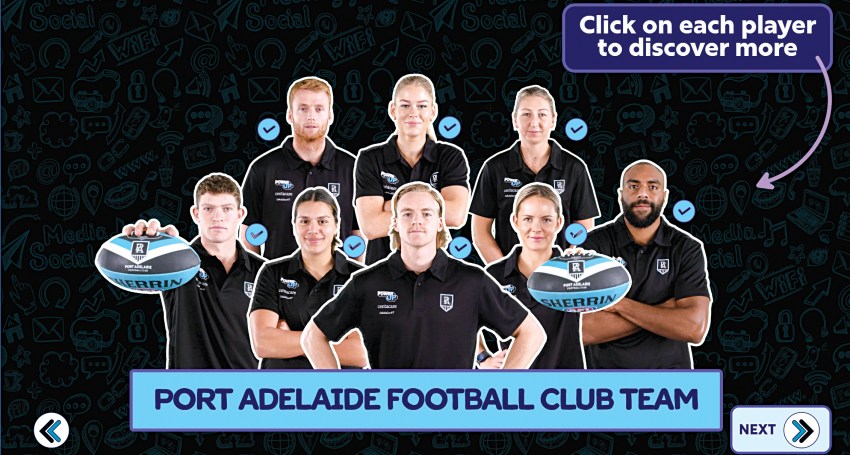Powerful tool for cyber safety
News
Centacare Catholic Community Services has teamed with the Port Adelaide Football Club to provide an online safety education platform called Power UP.

Designed to help young people have positive experiences in the digital world, the program was created by the Centacare Institute in partnership with CatholicCare NT, the Port Adelaide Football Club’s not for profit arm, Power Community Limited.
It is funded by the eSafety Commissioner’s Online Safety Grants Program which supports the delivery of online safety education to children, young people and their communities. Centacare was one of nine non-government organisations to share in $2.25m of funding in the third and final round of the program.
To be launched at the Port Adelaide Football Club on February 17, Power UP is available to schools across South Australia and the Northern Territory and aligns with the Keeping Safe Child Protection and National Education Curriculum Standards.
Ten core modules cover online safety issues such as sharing images, consent and cyberbullying while focusing on a balanced approach to gaming, social media and use of communication devices.
Specific modules are available for remote communities where the Eastern Arrernte language is spoken.
The Power UP program uses sport as a hook with eight Port Adelaide AFL and AFLW players providing video content. It follows the Power to End Violence Against Women partnership with Port Adelaide.
Players participating in Power UP videos include Janelle Cuthbertson, Ashleigh Saint, Sachi Syme, Georgie Jaques, Miles Bergman, Esava Ratugolea, Willem Drew and Mitch Georgiades.
“Power UP uses the influence of sport to engage young people and spark important conversations about online safety, said Jake Battifuoco, general manager, Power Community Ltd.
“Through our players’ connection with youth, we’re encouraging safer and smarter choices in the digital world.”
Dr Jonathon Louth, Director, Centacare Catholic Community Services, said Power UP equips young people with the knowledge and tools to navigate the online world safely and confidently while supporting teachers with resources that enhance classroom environments.
“This program fosters positive digital behaviours and promotes safer online spaces for future generations,” Dr Louth said.
“In focus groups with young people, we found they want more support when they are dealing with online issues, with clear guidelines about who to approach for help when they are dealing with online safety harms and when to ask for support.”
Common online experiences for young people are cyberbullying, sexual exploitation, accessing or being exposed to inappropriate content, misinformation and fake news, and receiving judgement from peers about their opinions online.
Research conducted by eSafety shows that children’s perceptions of the internet are more positive than negative overall, but they are cautious, with many noting it can be harmful.
Children were likely to feel emotional impacts after a negative experience online, most commonly sadness, anger and not feeling good about themselves (eSafety Commissioner 2022, Mind the Gap report).
The research also shows:
• Young people described unintentional encounters with online pornography as frequent, unavoidable and unwelcome.
• Aboriginal and Torres Strait Islander children are almost three times more likely than the national average to have had offensive things said to them because of their race, ethnicity, gender, nationality, sexual orientation, religion, age or disability.
• 85 per cent of eight to 17 year olds play online games around Australia, six in 10 play online games both alone (61 per cent) and with others (56 per cent). Harmful behaviours can happen in gaming spaces (eSafety Commissioner, 2024, Levelling up to Stay Safe report)
• Six in 10 children have communicated with someone they first met online. One in eight have met someone face-to-face after first getting to know them online. One in 10 children have been the target of hate speech online.
Teachers can register interest in the program via institute.centacare.org.au/school-programs/power-up











